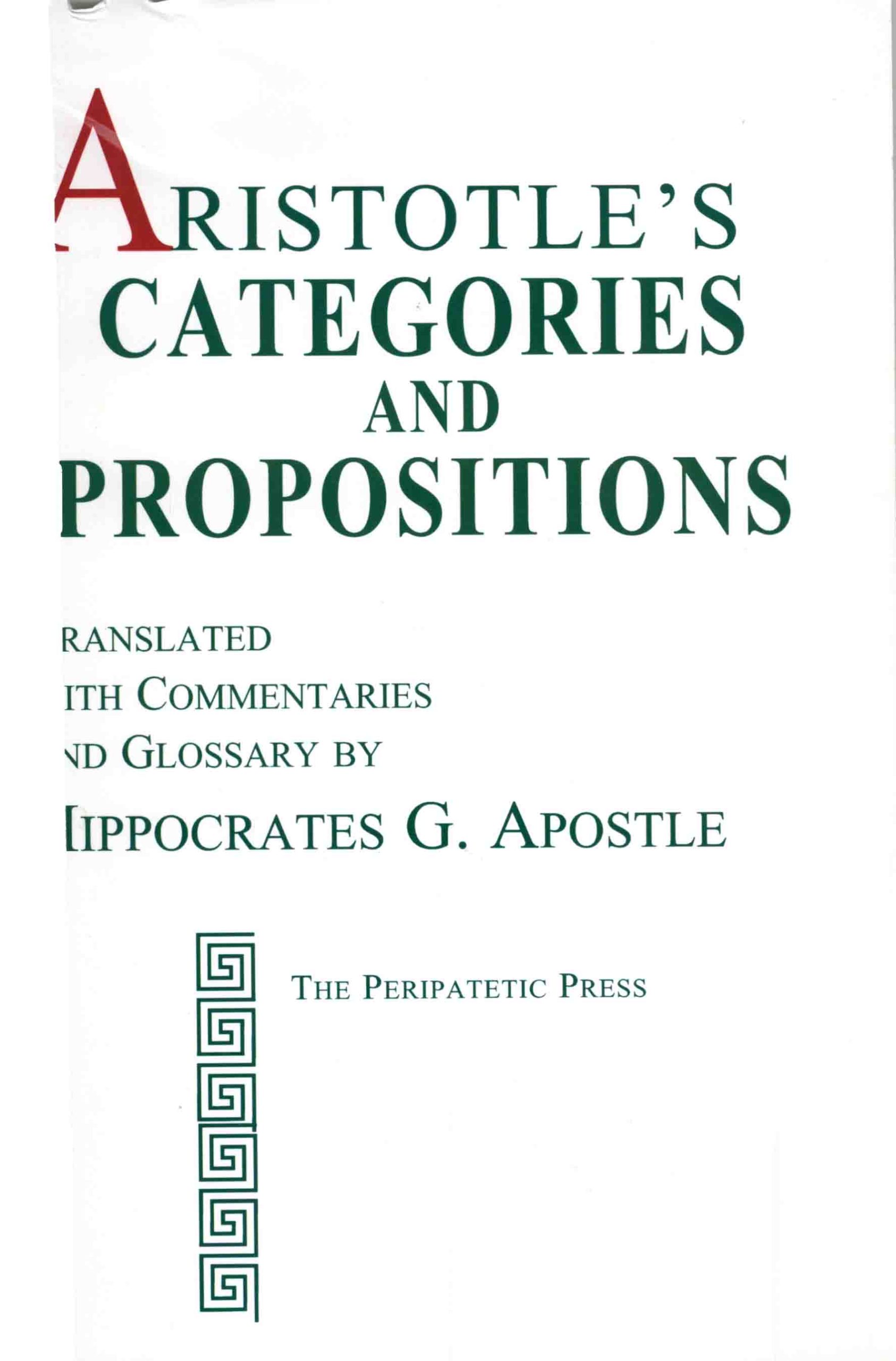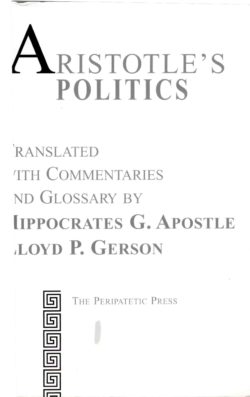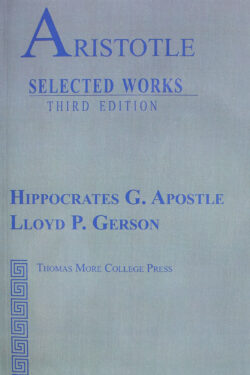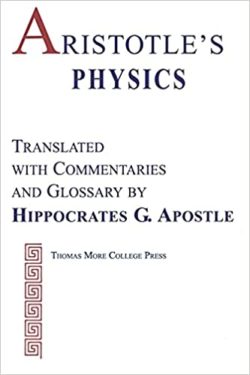Note from the Translator:
The Categories and the treatise On Propositions (De Interpretatione) are parts of the Organon, which is regarded as Aristotle’s comprehensive treatment of logic and science. There is considerable evidence that the Categories was written earlier than the treatise On Propositions (as well as such works as Physics, Metaphysics, and On the Soul). The evidence is considered in several of my Commentaries on the Categories: Section 6, Comms. 4, 6, 7, 8; Section 8, Comm. 13; Section 10, Comms. 10, 12; Section 11, Comm. 1; Section 12, Comm. 4; Section 14, Comms. 1, 3, 4; and Section 15, Comm. 1. The treatise On Propositions was apparently written after the work On the Soul, judging from lines 16a8–9.
The principles used in the translation of the Categories and the treatise On Propositions are the same as those used in my translations of the Metaphysics, the Physics, and the Ethics. English terms common to all four translations have the same meaning, with a few exceptions, and the meanings of the key terms and the corresponding Greek terms are given in the Glossary. Some Greek terms, e.g., those translated as “motion,” “quantity,” and “prior,” do not have exactly the same meaning in the Categories as in the later works, and I have indicated in my Commentaries and the Glossary the changes in meaning. To distinguish in print an expression, whether vocal or written, from what it signifies, or of a thought from the object of thought, I enclose it in quotation marks. Since expressions in Greek are already distinguished typographically, they are not enclosed in quotation marks. Expressions appearing in brackets are added for the sake of clarity and are not translations from the Greek.
In the margins of the translation I have inserted the page and line numbers of the Bekker text, which are standard. Deviations from the Bekker text have been indicated and reasons for them have been given. The various works of Aristotle and the Bekker pages containing each of them are listed at the beginning of the Commentaries.
I am grateful to Professor John M. Crossett, who read the entire manuscript, made numerous corrections and suggestions, and clarified the meaning of certain terms which Aristotle uses in other works; to Professor Kretzmann, for a number of corrections; and to Grinnell College, for its assistance and encouragement.
H. G. A.
Grinnell College



